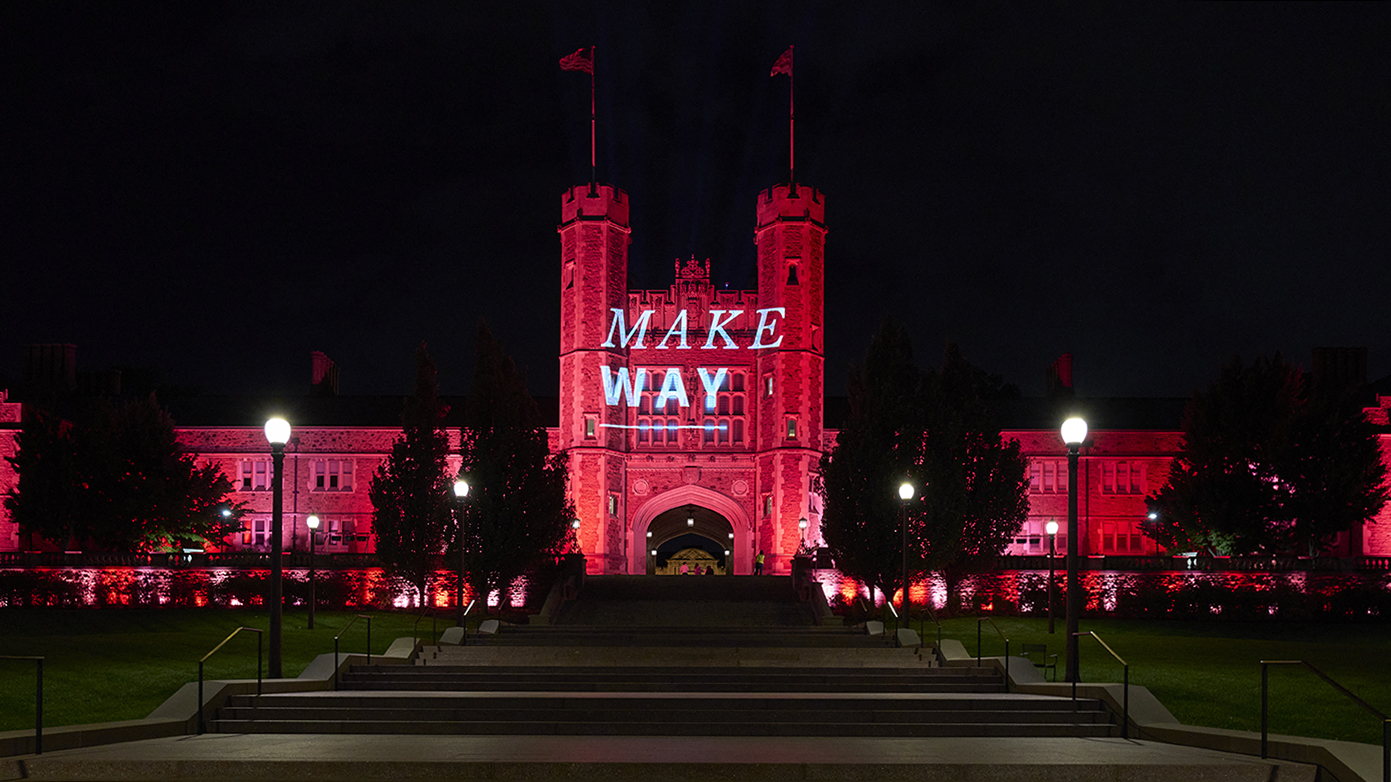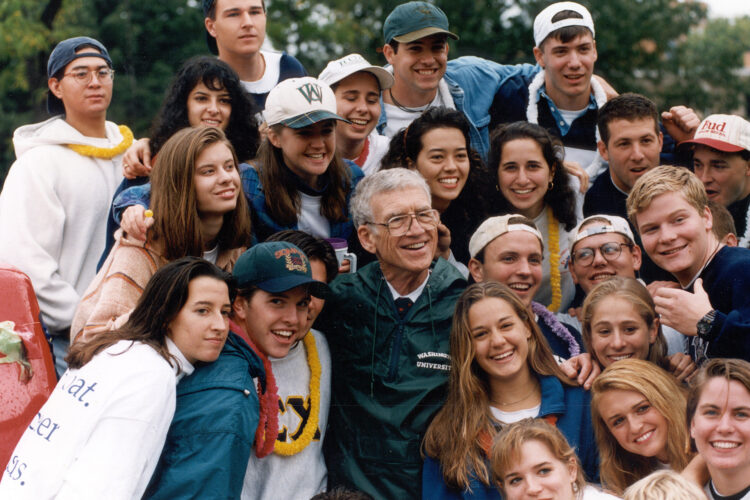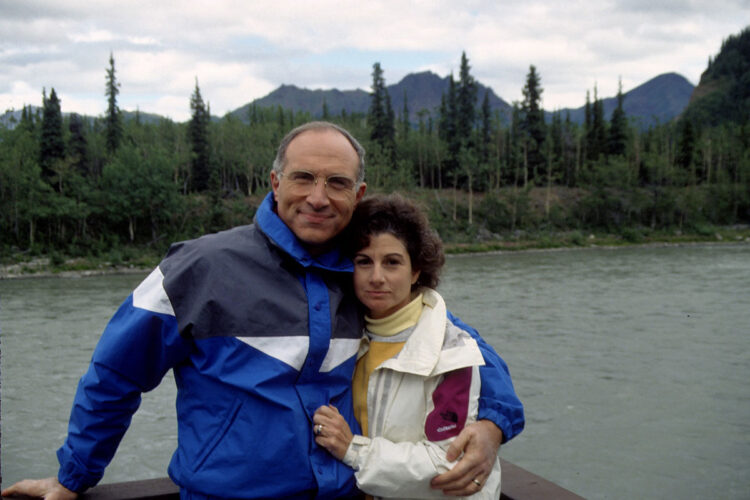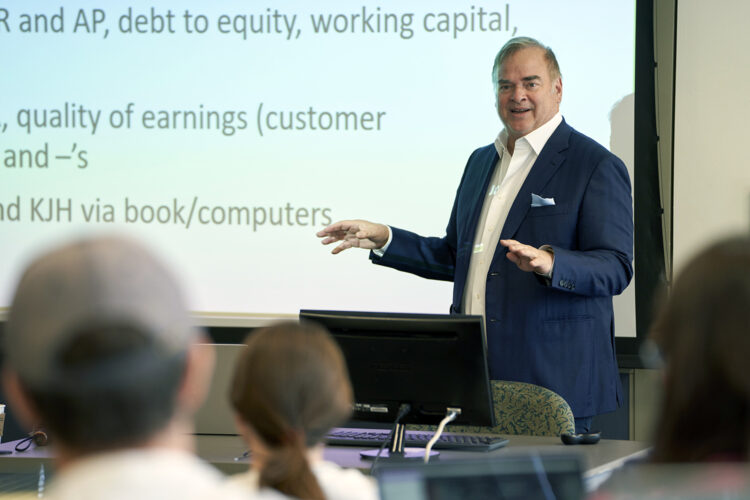Washington University has taken another step toward making its world-class training programs more accessible to all students. On Oct. 6, during a celebratory event on the Danforth Campus attended by hundreds of students, alumni, and friends, the university launched Make Way: Our Student Initiative.
Make Way giving challenges
Donors to Make Way can amplify the impact of their gifts by participating in giving challenges.
Catalyst Challenge
Created by university Trustee Lee Fixel, BSBA ’02, and his wife, Lauren, of New York, this challenge provides matching funds for new endowed undergraduate scholarships of $200,000 or more.
Learn more
Step Up Challenge
Trustee and Make Way co-chair Larry Thomas, BSBA ’77, of St. Louis established this challenge to inspire annual scholarship donors to increase their level of support.
The fundraising effort aims to build financial resources for:
- Undergraduate scholarships, particularly those that can be awarded to students in any school
- Graduate scholarships and fellowships
- A best-in-class student experience that transcends classroom walls, including programs that foster health and well-being, leadership skills, career preparation, engagement, and inclusion
“We’re calling this initiative Make Way because that’s truly what we’re aiming to do — make a way for our students to learn, thrive, and then carry their knowledge and skills into their communities and workplaces,” says Chancellor Andrew D. Martin. “They’ve done the work, they’ve shown the potential, and we’re going to remove obstacles that might otherwise prevent them from attaining the exceptional education that WashU can offer.”
Alumni and friends throughout the country have stepped forward to support Make Way. Since the start of the fiscal year in July, more than 2,000 households have made gifts or commitments for more than 200 endowed and expendable scholarships and other Make Way priorities.
Read why some donors are contributing to the initiative — and why they encourage others to do the same.
Proud alumnus gives back
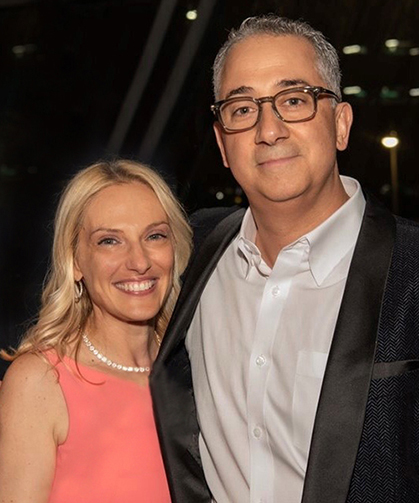
Russ Flicker, BSBA ’94, is dedicated to staying engaged with his alma mater. Among other volunteer positions, he is president of the Olin Business School Alumni Board. Over the years, he has followed the university’s decadelong effort to attract and enroll the most talented students, regardless of their background. When he learned about Gateway to Success, WashU’s $1 billion investment in financial aid that enabled the adoption of a need-blind undergraduate admissions policy in late 2021, he was inspired.
“It was such a fabulous announcement,” Flicker says. “It was the right thing for the university to do, and it made me so proud to be a WashU alum. My wife, Lisa, and I had been making gifts for annual scholarships at Olin for many years, but after the announcement, we wanted to participate in a bigger way.”
Beyond committing to a significant increase in their giving for undergraduate scholarships through Make Way, the Flickers shifted their support to universitywide scholarships, which allow WashU to award the funding to students in any school. This type of scholarship gift — a Make Way priority — aligns with the interdisciplinary pursuits of the university’s undergraduates, 80% of whom complete double majors or minors.
“I’ve become convinced that in the interconnected world we live in, pooling scholarship resources makes sense,” Flicker says. “We want students to be fulfilled and successful. So many 18-year-olds shift direction by the time they are 20 or 21. The WashU approach of encouraging undergraduates to take courses across different spectrums will lead to better career outcomes and happier alumni.”
“My scholarship made a big difference. Someone changed my life, and if I can help the next generation in the same way, I am thrilled to do it.”
Russ Flicker
Flicker’s insights stem from his interactions with today’s students. AWH Partners, the New York-based real estate investment firm he co-founded, has hosted WashU interns, and Flicker has been a mentor, competition judge, and mock interviewer for Olin students. Closer to home, his daughter, Molly, is a member of Olin’s Class of 2026.
Flicker says WashU students are exceptionally bright, driven, and sophisticated, which motivates him to help them professionally and financially. A scholarship recipient himself, he is determined to pay it forward. “I don’t kid myself about how lucky I’ve been,” he says. “My scholarship made a big difference. Someone changed my life, and if I can help the next generation in the same way, I am thrilled to do it.”
Co-chair invests in WashU’s legacy
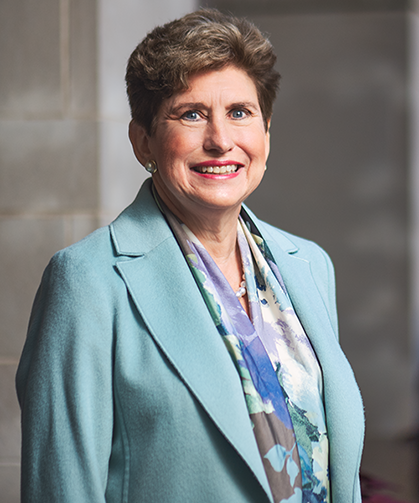
When Merry Mosbacher, MBA ’82, agreed to serve as one of four co-chairs of Make Way in July (see sidebar), she and her husband, Jim, began discussing how her role as a standard-bearer for the initiative would affect their giving. Longtime scholarship donors, their total contributions for that purpose at the time topped $1 million.
“Our mindset was, ‘OK, this is a leadership role. We need to lead by example,’” says Mosbacher, a retired partner at St. Louis-based financial services firm Edward Jones.
Their multiyear commitment to Make Way — $2 million for undergraduate scholarships as well as internships offered through the Gephardt Institute for Civic and Community Engagement — is their largest gift to date.
Mosbacher’s work as a member of the Student Access Advisory Committee (SAAC) shaped the gift. SAAC was convened by Chancellor Andrew D. Martin in summer 2021 to help develop the university’s plans to improve access and lay the groundwork for Make Way. “Getting under the hood with university leaders and learning how WashU compares with peer institutions in terms of scholarships and student support changed how I think about philanthropy,” she says.
The Mosbachers opted to split the scholarship portion of their gift between annual scholarships, which are immediately available to help students, and endowed scholarships, which provide a permanent source of funding over time. “Previously, we had a bias for annual scholarships because we wanted to put our dollars to work for more students right away,” Mosbacher says. “But my involvement with SAAC helped me see that endowed scholarships are equally important and will allow us to have an impact in the long term as well.”
“Getting under the hood with university leaders and learning how WashU compares with peer institutions in terms of scholarships and student support changed how I think about philanthropy.”
Merry Mosbacher
The couple also designated part of their gift to enhance the student experience. Their funding for the Gephardt Institute will finance paid summer internships for undergraduates who work with St. Louis area nonprofits. “It’s a win-win,” says Mosbacher, whose 38-year career at Edward Jones began with an internship. “It will provide students with meaningful work experience and benefit the St. Louis region, which is an important goal for Jim and me.”
Mosbacher is well suited for her position as a Make Way co-chair. Her volunteer service at WashU includes a stint as president of the William Greenleaf Eliot Society, the university’s giving club for donors who make Annual Fund gifts of $1,000 or more. Along with her fellow co-chairs, Mosbacher champions Make Way by speaking at events and helping organize volunteer networks. Her message to alumni and friends is simple: “The university ultimately is defined by the quality of its students and alumni. When you support Make Way, you invest in the legacy of WashU.”
Parents open doors for other students
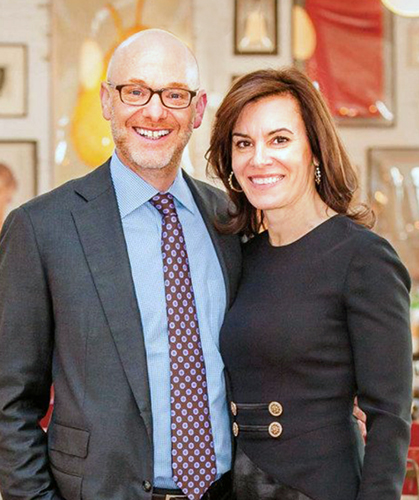
Michael Forman and Jennifer Rice didn’t know much about WashU until their eldest daughter began looking at colleges a few years ago. Today, they are among the university’s most active parents. Father and mother of Ava Forman, AB ’22, Lyla Forman, Arts & Sciences Class of 2024, and Sadie Forman, admitted to the Class of 2027 through the early decision process, the couple are generous supporters as well as members and chairs of the Parents Council.
“Having our kids at WashU has been very meaningful to us,” Forman says. “We’ve been incredibly impressed by the university, its administration, and its staff.”
Forman and Rice say their confidence in Chancellor Andrew D. Martin and his senior leadership team informed their recent decision to pledge $1.5 million to establish an endowed undergraduate scholarship through Make Way. The university’s efforts to improve access, including a move to need-blind admissions in 2021, also spurred them to make the gift. “That was really important to us,” Rice says. “We believe it’s incumbent upon institutions like WashU to steward their resources to ensure they can offer an outstanding education to all qualified students.”
Their scholarship will benefit students from Philadelphia public schools who demonstrate financial need. The gift connects their interest in the university with their passion for the city they call home. Both Forman, who is chairman and CEO of alternative asset management firm FS Investments, and Rice are dedicated community leaders. Their family foundation supports organizations focused on education, the arts, civic engagement, and equity.
“Providing opportunities for kids with fewer resources to attend WashU is something that really resonates with us.”
Michael Forman
“Providing opportunities for kids with fewer resources to attend WashU is something that really resonates with us,” Forman says. “We hope this elevates the university’s profile in Philadelphia and opens up a pipeline of students from the city.”
Forman and Rice’s connection to WashU began with their children. Their Make Way scholarship gift ensures it will live on long after all their daughters are alumnae. They hope other parents will follow their example. “It’s simple,” Rice says. “If you think a WashU education is of value, you should want to share it with as many people as possible. If you have the ability to help other students, you should.”
